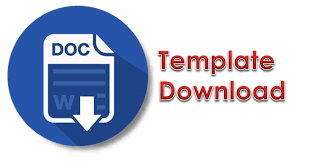Urgensi Manajemen Peningkatan Mutu Pendidikan
DOI:
https://doi.org/10.30997/karimahtauhid.v2i1.7706Keywords:
Classroom management learning objectives quality improvementAbstract
Classroom management is a benchmark for achieving the intended learning objectives Effective and efficient in the educational process, as a rule, educational goals It is calculated that this is achieved if classroom management has been carried out properly at the school alone. Classroom management is defined as teacher fees from classroom teachers Guide students in class planning or planning so you can plan and you can At the same time it creates a atmosphere that fun and always encourage students to participate and participate actively active in learning in class so that such a favorable environment help the success of the previously planned curriculum.
When writing articles that are the result of the author's thoughts, the writing method is used As a method of writing or literature, namely taking information from articles or books Lessons related to the topics discussed. Hence the urgency to achieve classroom management planned learning objectives From the point of view, criteria and different indicators We can assume that the quality of education can be improved when schools have done so 1) government support, 2) leadership effective school principals, 3) good quality teacher performance, 4) appropriate curriculum and quality graduates, 5) efficient organizational culture and climate, 6) community support and parents of students.
The application of leadership in improving the quality of education is the solution real hope to be able to master education quality indicators together Synergy to improve the quality of education.
References
Agustin, P., & Effane, A. (2022). Model Pengembangan Peningkatan Mutu Pendidikan dan Manajemen Pendidikan Mutu Berbasis Sekolah. KARIMAH TAUHID, 1(6), 903–907. https://doi.org/10.30997/karimahtauhid.v1i6.7700
Anggraeni, R., & Effane, A. (2022). Peranan Guru dalam Manajemen Peserta Didik. KARIMAH TAUHID, 1(2), 234–239. https://doi.org/10.30997/karimahtauhid.v1i2.7701
Asmara, Y., & Nindianti, D. S. (2019). Urgensi Manajemen Kelas untuk Mencapai Tujuan Pembelajaran. Sindang: Jurnal Pendidikan Sejarah dan Kajian Sejarah, 1(1), 12-24.
Damayanti, S. D., & Effane, A. (2023). Fungsi Kewirausahaan Dalam Pendidikan . KARIMAH TAUHID, 1(1), 90–98. https://doi.org/10.30997/karimahtauhid.v1i1.7711
Fadhli, M. (2016). Manajemen Peningkatan Mutu Pendidikan. ITQAN: Jurnal Ilmu-ilmu Kependidikan, 7(1), 103-113.
Fadhli, M. (2017). Manajemen peningkatan mutu pendidikan. Tadbir: Jurnal Studi Manajemen Pendidikan, 1(2), 215-240.
Farah Anisa, & Effane, A. (2023). TUJUAN MANAJEMEN SEKOLAH. KARIMAH TAUHID, 1(1), 80–83. https://doi.org/10.30997/karimahtauhid.v1i1.7720
Sefhia Naila, & Effane, A. (2023). Desentralisasi Manajemen Pembiayaan Dan Konflik Dalam Mahalnya Biaya Pendidikan. KARIMAH TAUHID, 1(1), 84–89. https://doi.org/10.30997/karimahtauhid.v1i1.7715
Siti Nurharirah, & Effane, A. (2023). Hambatan dan Solusi dalam Manajemen Sarana dan Prasarana Pendidikan. KARIMAH TAUHID, 1(2), 219–225. https://doi.org/10.30997/karimahtauhid.v1i2.7709
Sutisna, N. W. ., & Effane, A. (2022). Fungsi Manajemen Sarana dan Prasarana. KARIMAH TAUHID, 1(2), 226–233. https://doi.org/10.30997/karimahtauhid.v1i2.7719
Usman, J. (2016). Urgensi Manajemen Pembiayaan Dalam Peningkatan Mutu Pendidikan Madrasah. TADRIS: Jurnal Pendidikan Islam, 11(2), 219-246.
Yati, R. (2021). PERAN MANAJEMEN KEUANGAN SEKOLAH DI DALAM PENDIDIKAN.
Downloads
Published
How to Cite
Issue
Section
License
Copyright (c) 2023 Meliani Putri, Anne Effane

This work is licensed under a Creative Commons Attribution-ShareAlike 4.0 International License.



